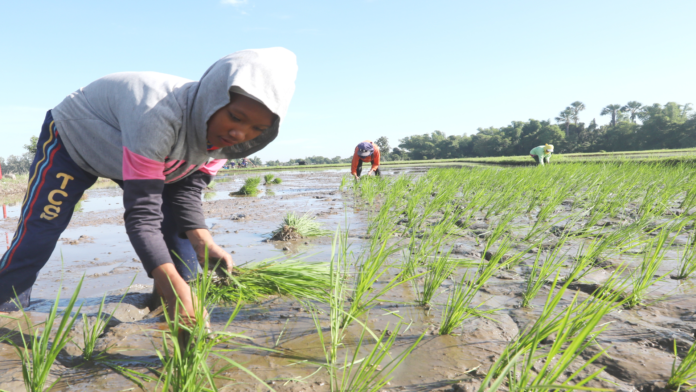The Philippines is eyeing partnerships with Japan and other countries to increase its share in the global creative industries market, President Ferdinand R. Marcos Jr. said on Sunday.
In his speech during the Creative & Sustainable Economy Through Innovation event spearheaded by the Department of Trade and Industry in Tokyo, Japan, Marcos said the Philippine creative economy remains a prime contributor to sustainable economic development.
“One way to accelerate this is in partnering with like-minded countries such as Japan. In the Philippines, we are not just witnessing economic growth. We are crafting a legacy of innovation, creativity, and sustainability for generations to come,” Marcos said in his speech on the sidelines of the Commemorative Summit for the 50th year of ASEAN-Japan Friendship and Cooperation.
The President said the global creative industries market is expected to grow to USD3.4 trillion in 2028 from USD2.6 trillion in 2022.
He said the Philippines intends “to increase our share of the pie of these numbers.”
Marcos said he looks forward to seeing the works of Filipino talents in computer animation specializing in Japanese-stylized animation.
“I am very optimistic that this collective effort towards a creative and sustainable economy will foster great opportunities and prosperity for the Philippines and Japan,” he said.
The President acknowledged the efforts of First Lady Liza Araneta-Marcos in assuming the role of patron for indigenous textiles, design services, micro, small and medium enterprises, public health services, and other causes aimed at protecting the environment, and supporting many creative projects and innovative enterprises.
Highlighting the immense challenge in attaining the United Nations Sustainable Development Goals by 2030 that requires an annual global investment of USD5.4 trillion, Marcos said the Tokyo event is an intersection of innovation, creativity, and sustainability where the global community could collaborate to secure a brighter and more sustainable future.
Food security
The President likewise called on the ASEAN-Japan Friendship and Cooperation Summit to come up with a 10-year roadmap on new technologies and climate-resilient plans to ensure food security in the region.
Marcos said he encourages new agricultural technologies and the crafting of a climate change-resilient, sustainable, inclusive, and people-centered ASEAN-Japan Strategic Economic Cooperation Roadmap beyond 2025.
The Philippines also encourages ASEAN member states and Japan to undertake novel joint ventures to reduce carbon emissions, promote renewable energy, and enhance environmental sustainability.
“I am confident that this partnership will continue to grow and expand with the AJCEP (ASEAN-Japan Comprehensive Economic Partnership) Agreement and RCEP (Regional Comprehensive Economic Partnership Agreement) in place,” President Marcos said in his intervention during the ASEAN-Japan Commemorative Summit Session Two.
“Furthermore, with the recent addition of the ASEAN-Japan Economic Co-Creation Vision that recommends the future direction of ASEAN-Japan cooperation, we anticipate an even more vigorous economic relation,” he added.
The President welcomed new cooperation initiatives with Japan that facilitate the development of robust supply chain strategies against future disruptions and shocks in ASEAN, through diversification, digitalization, and risk management.
“As the world becomes more interconnected, ASEAN must develop its physical connectivity and digital infrastructure as foundations for sustainable and inclusive economic growth, economic integration, competitiveness, and resilience,” Marcos said.
“We would appreciate, in this regard, the continued exchange of technological know-how and best practices between ASEAN member states and Japan and investment in human capital and upskilling through various scholarship programs for ASEAN member states,” he added.
Japan is currently ASEAN’s fourth largest trading partner and the fourth biggest source of Foreign Direct Investments. (PNA)


